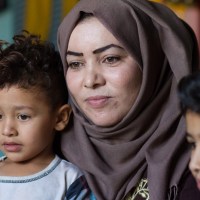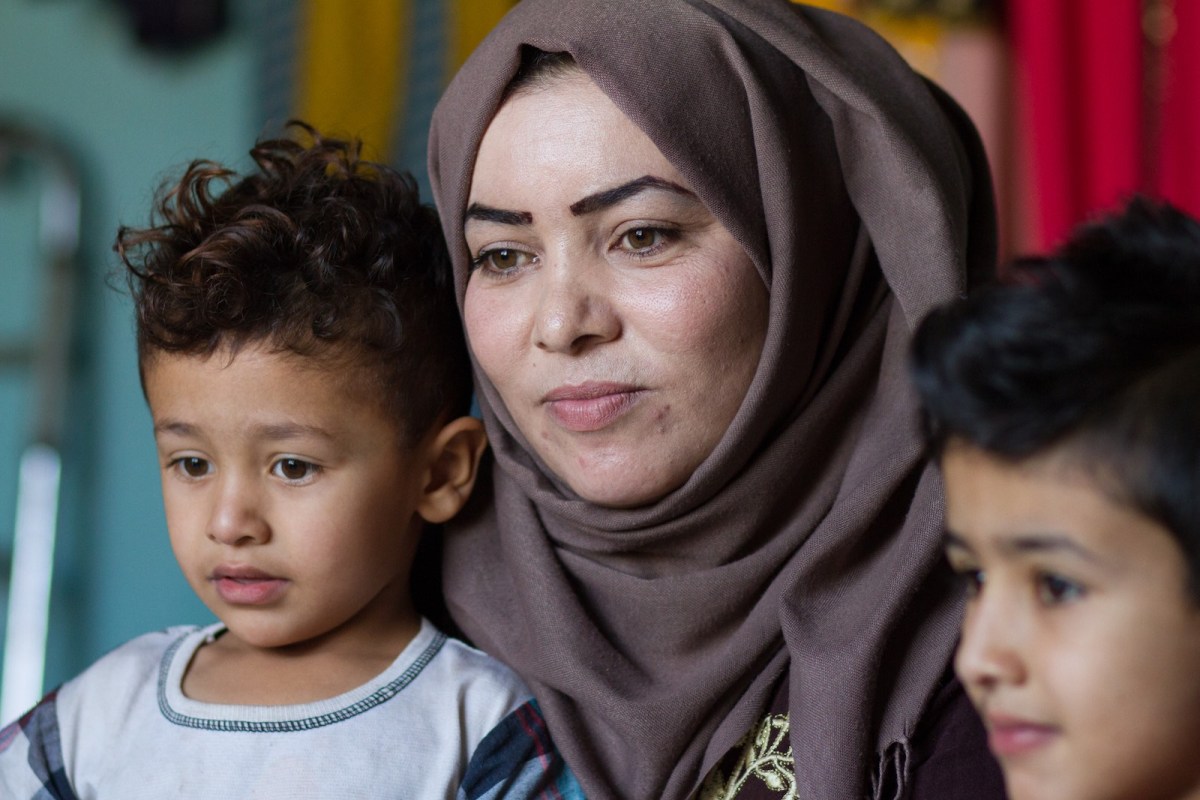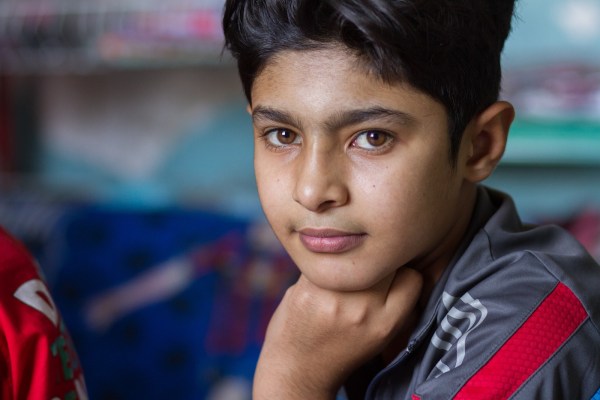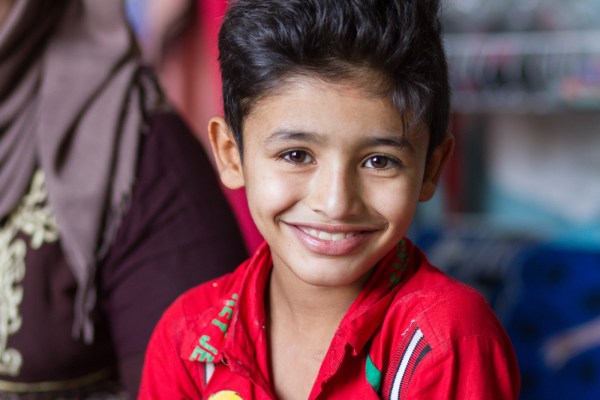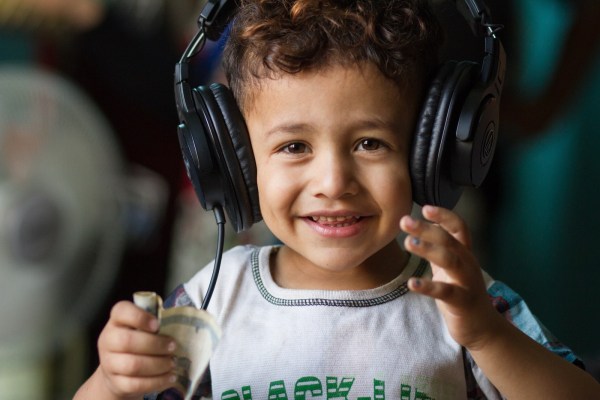When I meet Khalida for the first time, she is settled into her role as a business owner. Shelves line one wall of the room that serves as both her shop and part of her family’s home. Clothes for women and children, carefully covered in plastic to keep the dust off, are hung flat against the wall for display.
Her neighbours, friends, and family come to shop here. Khalida knows her customers—what they need, what they like. They know she will have what they’re looking for at a good price.
Khalida accomplishes all this despite the fact that it’s hard for her to get around. Despite the fact that her husband has to carry her down the stairs of the derelict hotel that is now their home, along with other families who were displaced by ISIS.
Despite the fact that if she stumbles on the uneven pavement, her one remaining leg won’t keep her standing.
Khalida will never forget the day she lost her leg.
The plane flew low overhead. She could clearly see it was an Iraqi military jet.
She was out in front of her house, waving a white flag so her home wouldn’t be bombed. The pilot either didn’t see her flag, or wasn’t convinced she was an innocent civilian, not part of ISIS—so he dropped his bomb.
When Khalida saw it fall from the plane, she responded like any parent: she threw herself over her sons to protect them from the blast, cradling her youngest in her arms. Khalida saved their lives that day—and lost one of her legs.
On the way to the hospital, in the back of a relative’s car, Khalida held the tourniquet on her own leg to keep from bleeding out. It’s a gruesome detail to share, but it illustrates how strong she is, how much grit she has.
Khalida has the sweetest smile, but make no mistake—she is fierce. She has to be, to come so far after losing so much. Khalida continues to do what seems impossible, long after others would have given up.
If you translate Khalida’s name into English, it means “immortal” or “deathless.”
She cheated death once, but being “deathless” doesn’t make you fearless. It doesn’t mean Khalida isn’t weary of putting up a strong, brave face for the world. She worries for her children’s future. She worries because her husband is too sick to work.
“From the time of the accident until now, I have learned a lot of things,” she tells me. “I was hopeless and my mood was zero.”
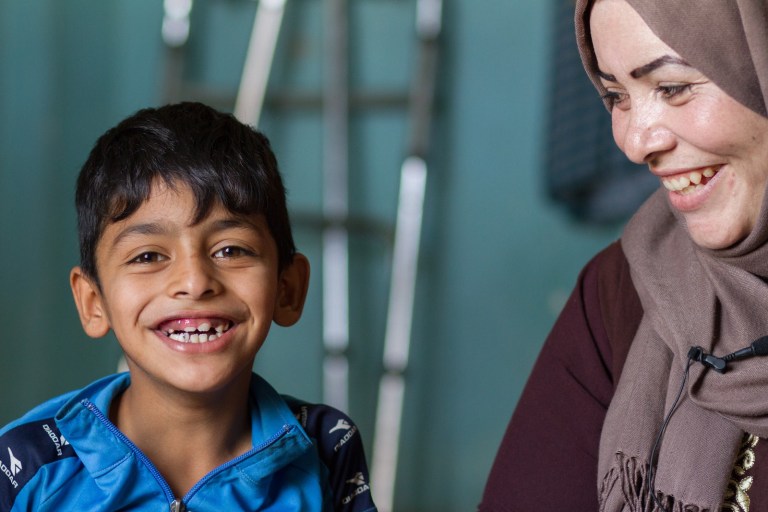
Imagine if losing so much to war didn’t have to mean losing hope.
Khalida is slowly rebuilding her life despite her fears, despite the many obstacles. She is earning a living for her family in spite of being displaced, in spite of being far from home. She is providing for her family, in spite of the pervasive notion here in Iraq that your ability to do meaningful work ends with a disability.
“Now, since I have this [shop], thank God it is all much better.”
There are many Khalidas in Iraq. Women who bear the physical and emotional scars of war, who’ve lost homes and loved ones to violence, who’ve been written off because of their gender or because of a disability—but who refuse to let go of hope.
With your gift, you can provide small business grants for women like Khalida. You can provide the tools and coaching they need to build thriving businesses. You can turn refugees into entrepreneurs—and help their families rise from the ashes of war.
Khalida’s vision is bigger than this one-room shop. She plans to return home and open a new shop—a bigger one. “I will call it ‘Mustafa’s Shop,” she tells us proudly, patting her youngest son’s head, the she held tight in her arms on the darkest day of her life.
“I will never let go of my dream.”

